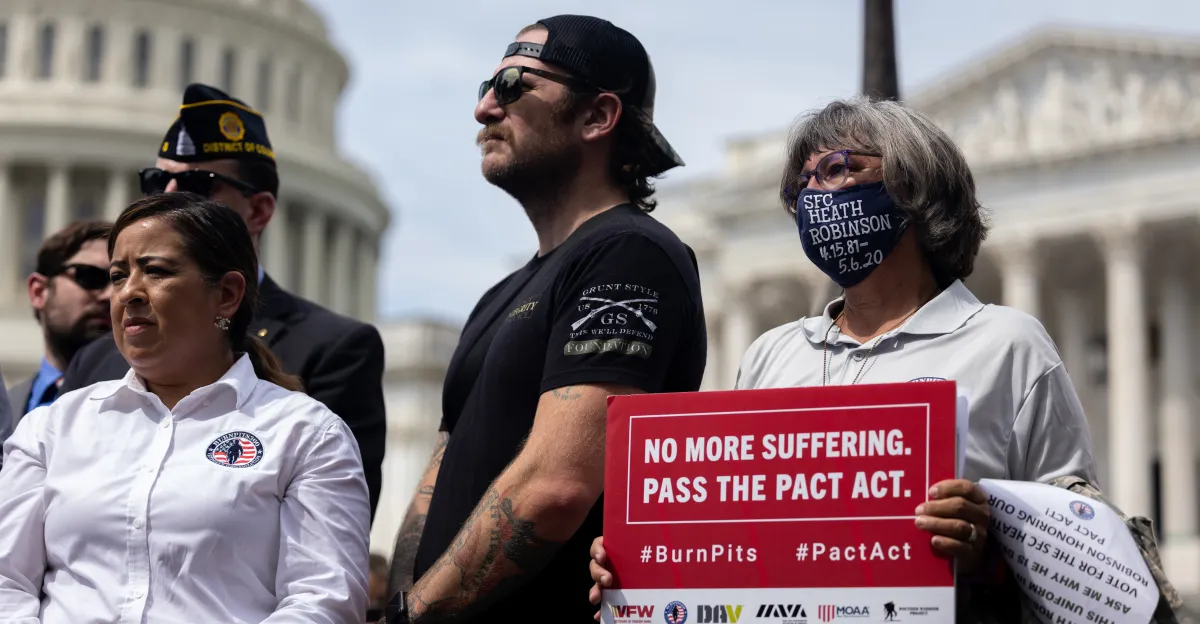As a veteran, I have realized that the battle doesn't always end on the battlefield. Long after the physical wounds have healed, a silent enemy can continue to wage war within us, tearing apart the fabric of our lives. Anxiety and panic attacks, intricately entwined with Post-Traumatic Stress Disorder (PTSD), cast a long shadow over our existence. These foes are often misunderstood, leaving veterans like me struggling to find solace and regain control. In this deeply personal account, I will outline some of the devastating impacts anxiety and panic attacks can have on veterans. The journey to find effective treatments amidst the conventional methods that often fall short is challenging, to say the least. This is what I've learned along the way.
The Unseen Battle:
There are "many roads" to PTSD – you don't always have to be a frontline grunt or even get deployed. We now know that MST, training accidents, and even non-military-specific incidents can scar servicemembers deeply. PTSD or PTS is fluid and often misdiagnosed. It lives on within us, replaying the traumas we witnessed and experienced in vivid detail. Nightmares haunt our sleep, and intrusive memories hijack our waking moments, leaving us on edge, ever vigilant. Anxiety becomes our unwelcome companion, lurking in the depths of our minds, and panic attacks are the relentless storm that sweeps over us when we least expect it.
The Shattered Pieces:
Anxiety and panic attacks are not mere fleeting moments of discomfort but seismic events that can shatter our lives into fragments. Relationships strained to the breaking point, dreams and ambitions obscured by the dense fog of fear, and once-vibrant spirits dulled by the weight of relentless anxiety.
Conventional Treatments Fall Short:
Many of us have sought help through conventional treatments and classic forms of therapy, only to find that they are not always the silver bullet we had hoped for. While these methods can provide relief for some, they often fail to penetrate the intricate layers of our trauma. Medications may dampen the symptoms, but they seldom address the underlying causes. Talk therapy may offer temporary respite, but the resounding echoes of battle continue to reverberate within us. That battle isn't always bombs and bullets – often, it's an ongoing and grinding conflict deep within us, eating away at us one bite at a time.
The Vicious Cycle:
Unfortunately, conventional treatments can sometimes worsen our symptoms. The pressure to conform to societal expectations and "get better" can inadvertently intensify anxiety and panic attacks. The recurring sense of failure and disappointment fuels a cycle of self-doubt, reinforcing the belief that we are broken beyond repair. I've walked out of one-on-one therapy feeling comforted and confident, only to have a massive panic attack later that evening, leaving me questioning my treatment and sanity.
Seeking Alternatives:
Mindfulness and meditation have offered moments of reprieve, allowing us to observe our thoughts and emotions without judgment. Support groups composed of fellow veterans have provided a safe space for shared understanding, reminding us that we are not alone in our struggles. Animal-assisted therapy has proven to be a balm, offering unconditional companionship and a respite from inner turmoil.
The Need for Holistic Approaches:
As veterans, we deserve comprehensive, holistic approaches to healing that honor the multidimensional nature of our struggles. Innovative therapies that integrate evidence-based practices with emerging treatments hold promise in reaching the core of our anxiety and panic attacks. Eye Movement Desensitization and Reprocessing (EMDR), equine therapy, and neurofeedback are just a few examples of modalities that have shown the potential to offer new paths to recovery. Also, let's consider that many veterans with PTSD symptoms are misdiagnosed and suffer from Traumatic brain injuries that have gone unnoticed and untreated – early diagnosis can change lives.
Support, Understanding, and Compassion:
Perhaps the most crucial aspect of our journey toward healing is the unwavering support, understanding, and compassion from our communities. The stigma surrounding mental health issues must be dismantled, allowing us to seek help without fear of judgment or alienation. Empathy and validation, rather than skepticism, can go a long way in restoring hope and instilling a sense of belonging. In particular, MST survivors will often attest to this fact. Many will take solace in group therapy and community support since much of their trauma is associated with losing trust and connection to their peers.
THC and CBD:
While THC and CBD are fantastic alternative medicinal treatments for many people, it is not the answer for all. Multiple psychiatrists I've spoken with have warned me as much. THC can sometimes exacerbate Panic attacks and anxiety in some – myself included. It can increase paranoia and lock the brain into a cycle of panic and anxiety lasting for minutes or hours. I will never say that THC is a bad thing or "the wrong" thing – I'm merely saying do your research and, as with any substance, approach it with care and caution when beginning. It's bad enough having a panic disorder without being locked into a THC-induced panic attack.
Conclusion:
The battle against anxiety and panic attacks for veterans with PTSD is arduous, and our invisible wounds require compassionate care, innovative approaches, and unwavering support. I sincerely hope that one day, no veteran will have to fight this battle alone, and the scars of war can be transformed into stories of resilience and triumph. Until then my greatest piece of advice: give yourself time and grace. Accept that which you cannot change and concentrate on that which you can. Do one kind thing for yourself everyday and two for someone else. Embrace those who love you and reach out – you’ll be surprised at who will reach back.



%201.svg)




.jpg)




